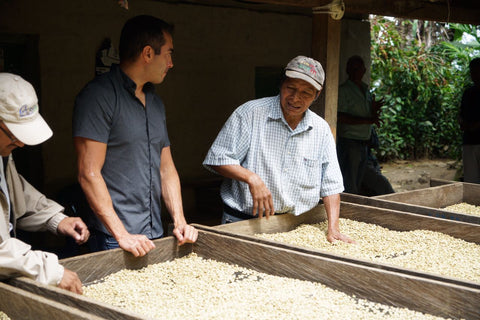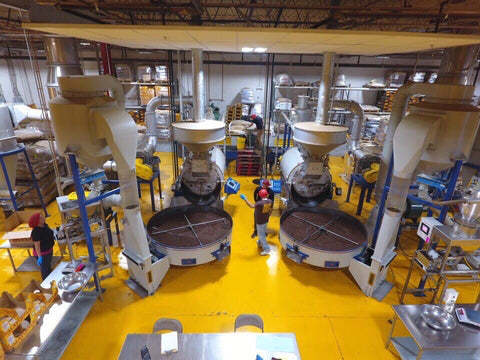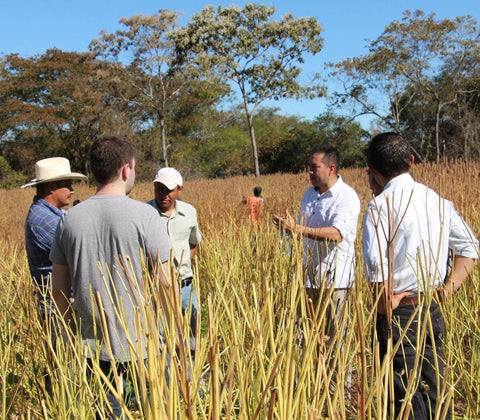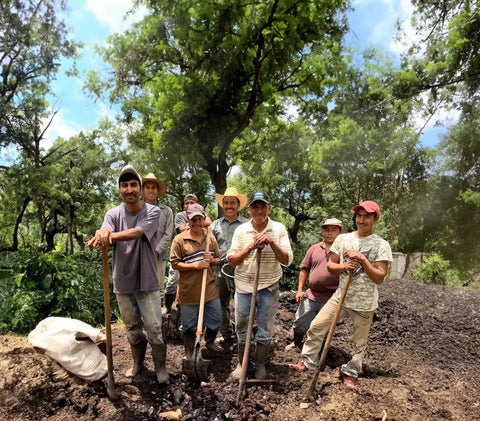ORGULLO LATINO
Reading time: 3 minutes
The EU’s Anti-Deforestation Law: More Harm Than Good?
The EU has recently revealed plans to adopt an anti-deforestation law, which will come into effect in 2024. On the surface, this move shows great progress in the fight against climate change and the loss of biodiversity across the globe. However, what negative effects might this law have on developing countries? And what can we do to mitigate these effects?
Jump to:
What Are the New Law's Requirements?
Under the new law, companies will not be permitted to sell products, such as coffee, timber and cocoa, that come from deforested land or that have contributed to forest degradation. While the requirement of a 'due diligence' statement certifying their products' disconnection from deforestation and forest degradation is praiseworthy, it is vital to consider that many developing nations depend on agricultural exports, including coffee, for their income. For these countries, the costs of putting new sustainability measures in place, on top of the low prices they already get for their products, could take a serious financial toll. More worryingly, the strict requirements of EU law might force smaller farmers out of business or push them towards selling their land and leaving the country.

The Potential Impact on Coffee Producers
Coffee is a key export crop for many developing countries, like Brazil, Colombia, Vietnam, and several African nations. The economic, political, and social challenges faced by these countries can make it hard for them to invest in environmentally friendly practices. The new EU law may exacerbate these challenges by placing sole responsibility on producers to ensure their products are free from any deforested land.More like this: Breaking down the business of coffee cooperatives
Sustainable Disparity: Supportive Solutions Needed
Developed countries, like the ones in the EU, have the money and resources to invest in sustainable practices and technology. But it's a different story for coffee growers in developing countries. They often don't have access to the money, knowledge, and infrastructure needed to start using environmentally responsible farming practices. In this situation, putting strict rules in place without giving enough support and solutions could lead to corruption, fraud, and other devastating consequences. This is something that has already been seen with other certifications.
The EU's anti-deforestation law sheds light on an important question: who should cover the cost of being climate responsible? Developed countries, with economic, financial, and political stability, often make new rules without thinking about what they mean for poorer nations. But if we want to make real progress in dealing with climate change and saving biodiversity, we need to share the responsibility more fairly.

A Fair Approach
One way to do this is for wealthy countries to help developing nations use sustainable practices. This help could come in different forms, including financial aid, knowledge sharing, capacity building, and direct engagement with producers. Additionally, consumers in developed countries should be prepared to pay a fair price that reflects the true cost of environmentally responsible production.
Helping developing countries means making sure they have access to the technologies and infrastructure necessary for sustainable production. It also involves providing support to farmers by teaching them about financial stability, sharing knowledge and technologies, and collaborating to create a more sustainable future. It's essential for countries to unite and ensure that the onus of sustainable coffee production is shared amongst both developed and developing countries, with joint efforts being made to overcome challenges posed by the new law.
A Powerful Union For Progress
Together, both developed and developing countries can create effective strategies to ensure that agricultural practices are sustainable and environmentally responsible. This partnership can lead to more resilient supply chains and a stronger global economy, while also addressing the urgent issues of climate change and biodiversity loss.
True progress lies not in unilateral actions but in fostering a spirit of cooperation, shared responsibility, and active engagement. The path to a sustainable, environmentally conscious global community requires supporting developing countries through this transition, collaborating to overcome challenges, and ensuring a fairer distribution of climate responsibility. By doing so, we can all contribute to a brighter, greener future, where progress doesn't come at the expense of the vulnerable.









